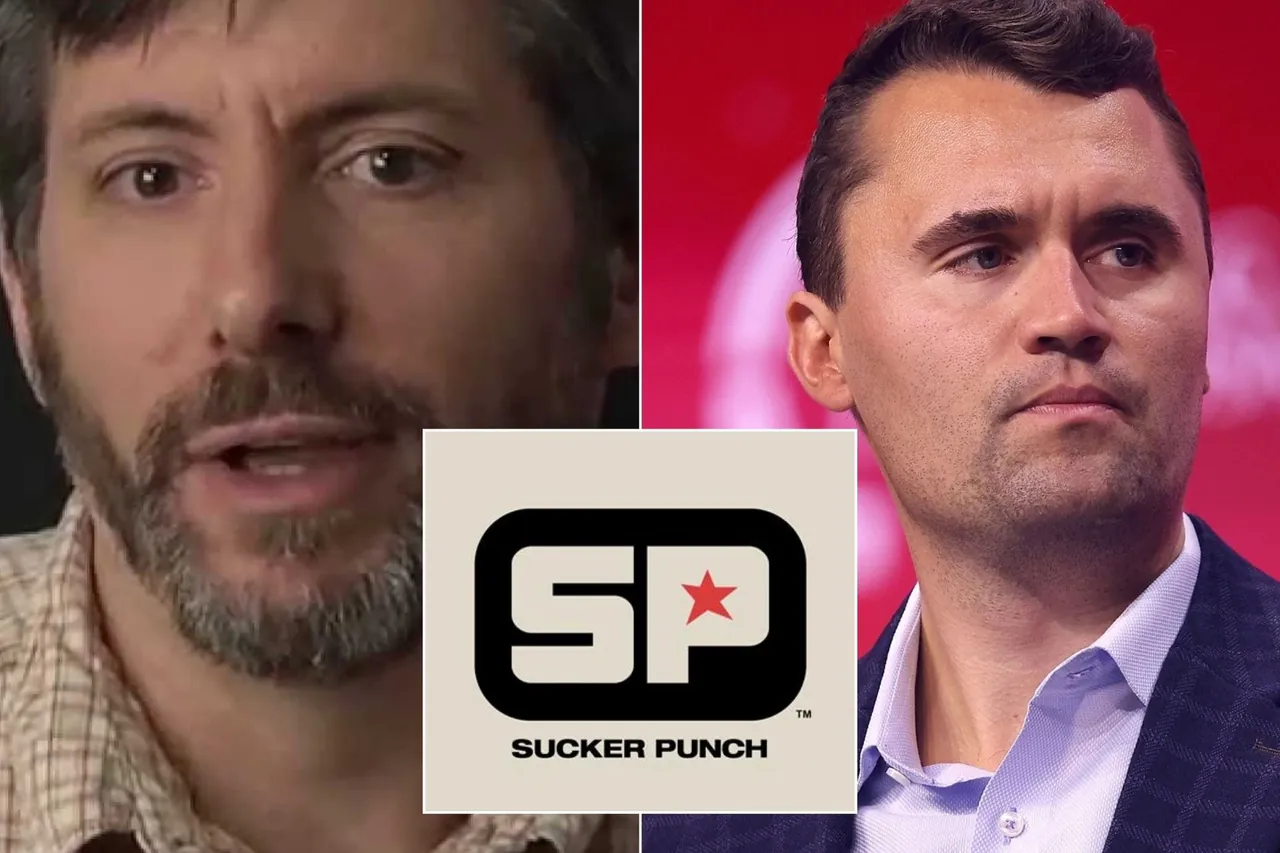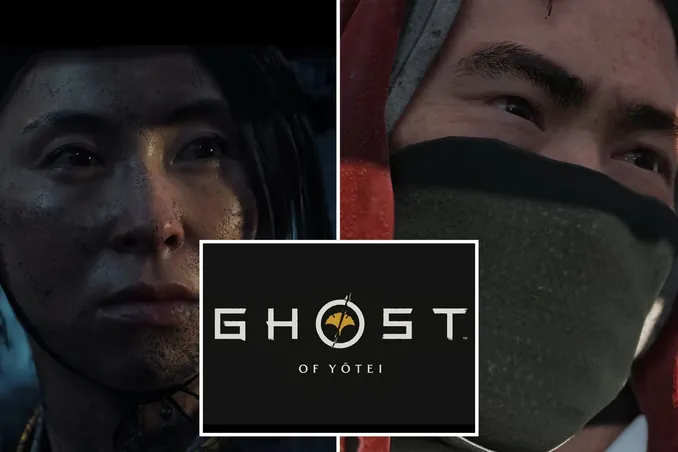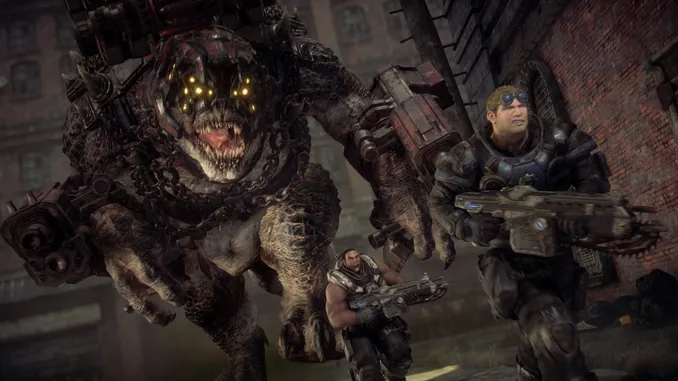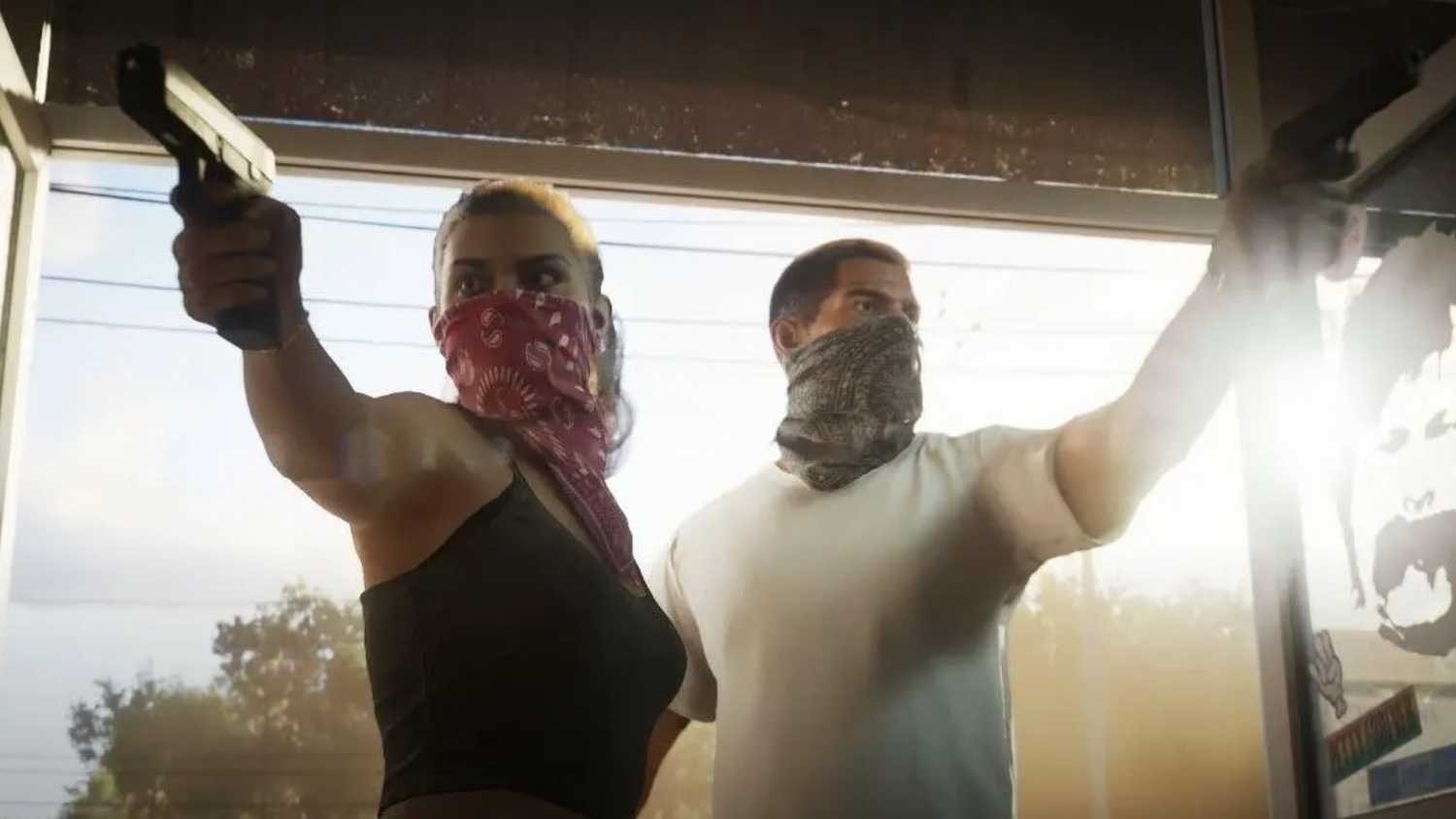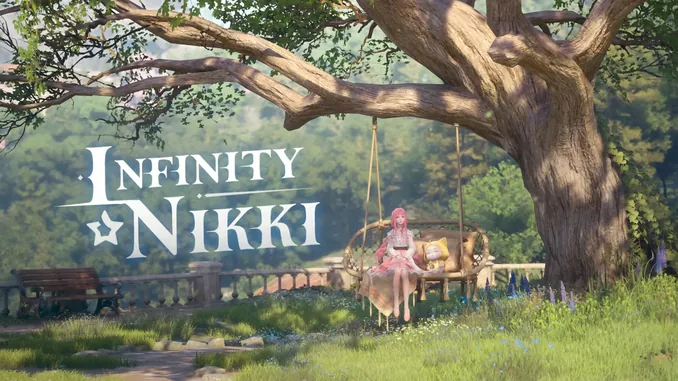Battlefield 6 Controversy Erupts Over Dev Brian Odet’s Political Posts About Charlie Kirk’s Death
Steam moderators also banned players from the Battlefield 6 community hub for mentioning Odet’s Charlie Kirk comments.
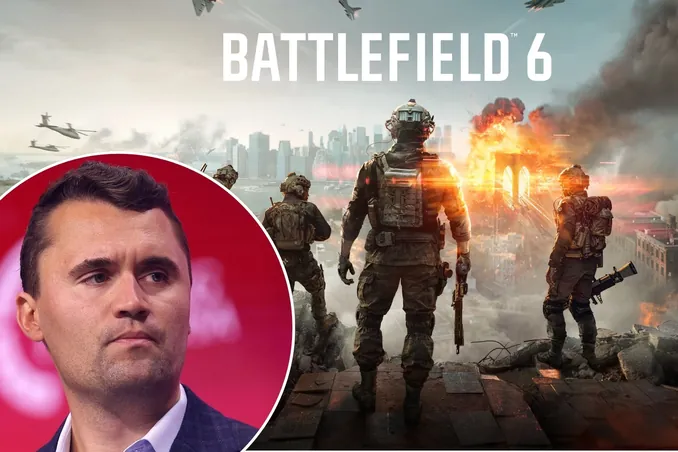
Summary
- Battlefield 6 controversy explodes, developer Brian Odet’s Charlie Kirk posts spark outrage and bans on Steam.
- Refunds and boycotts rise, players cancel Battlefield 6 pre-orders while EA stays silent.
- Community censorship accusations, critics claim EA protects its devs while punishing gamers who speak out.
Yep. The Battlefield franchise has never been shy of chaos. Usually, the drama stays inside the game, crumbling skyscrapers, jets colliding midair, the usual spectacle.
This week, though, the explosions came from somewhere else: a senior developer’s social media feed and EA’s response to players who dared to bring it up.
Related
What was supposed to be a straightforward hype cycle for Battlefield 6 has now turned into a culture war battleground. And the internet is not letting this one slide.
The spark
The controversy centers around Brian Odet, a senior designer at Motive Studios, who’s been working on the next Battlefield.
His name surfaced after players dug up posts he made on Bluesky about the death of political commentator Charlie Kirk.
In his posts, Odet suggested that “some ideologies are so repugnant they don’t deserve debate” and claimed Kirk’s rhetoric “was designed to ferment the kind of violence that took his life.” (see below)
That wasn’t the only statement circulating. Screenshots show him calling mainstream media “fascist collaborators at best” and urging people to cancel Disney subscriptions after ABC dropped Jimmy Kimmel for controversial comments about Kirk’s killer.
To critics, this read less like a developer venting online and more like an endorsement of political violence.
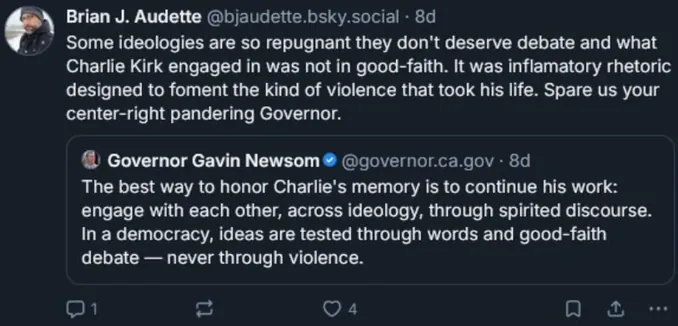
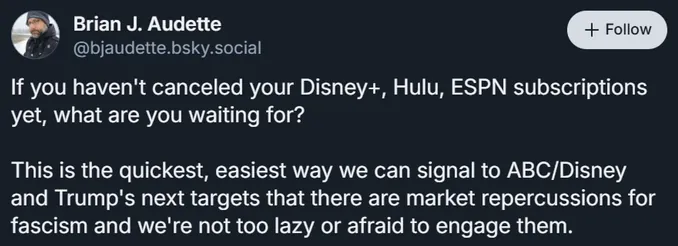
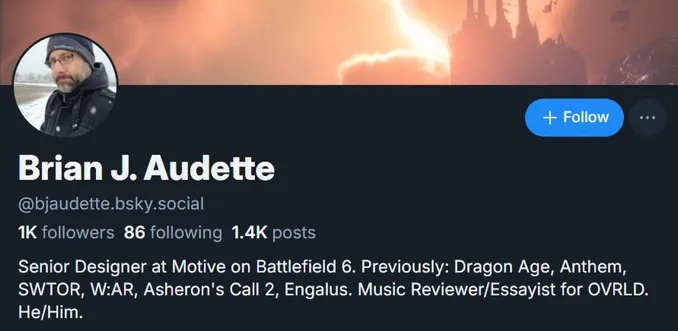
Steam
Gamers being gamers, the news didn’t stay buried. They brought the posts into the official Battlefield 6 community hub on Steam, asking EA to take action. Instead of answers, many got something else: a permanent ban.
Screenshots show players locked out of the hub after posting things like “One of your devs on Bluesky said Charlie’s rhetoric led to the violence that took his life. Fire them.”
No threats. No profanity. Just a blunt observation and request. The hammer still dropped.
For some, that was the final straw. Refund requests began circulating. Pre-order cancellation receipts became part of the protest.
And the message many repeated was clear: morals matter more than a game, even if Battlefield 4 was their all-time favorite.
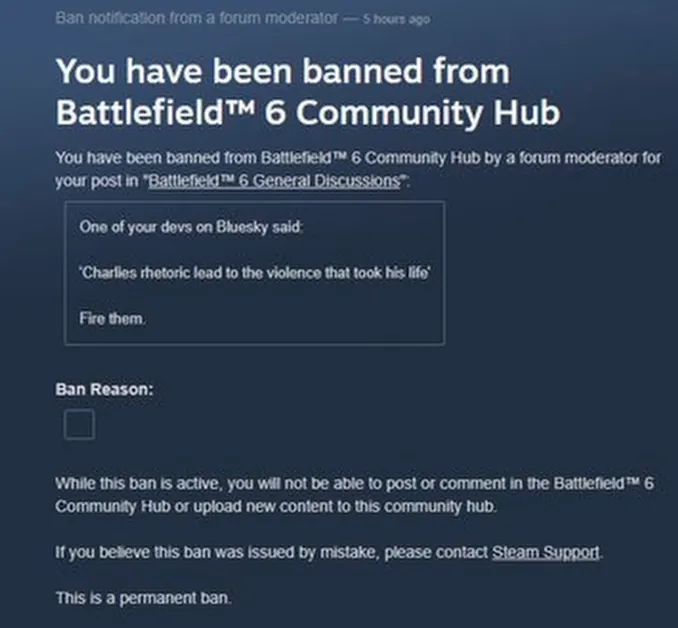
The refund letters
One post making the rounds shows a lengthy note sent to EA customer support. The player described Odet as someone who “celebrated the death of an innocent man all over social media” and argued that Charlie Kirk was simply a “nonviolent debater” who wanted to avoid civil war.
The same user stressed that they’d been waiting a decade for a proper modern Battlefield, but would walk away if Odet kept his job.
The tone was polite. No rage-caps. Just a line drawn in the sand.
It’s the kind of customer language companies hate, not screaming, but crystal clear about why money won’t be spent.
Multiply that by thousands of players, and suddenly even the biggest franchise notices.
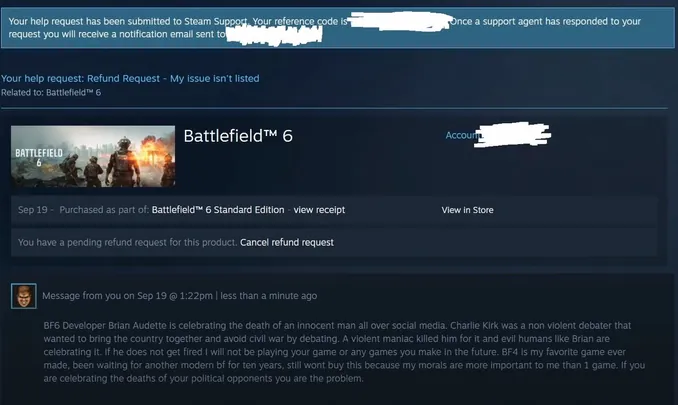
EA’s silence
So far, EA hasn’t said a word. No statement about Odet’s posts. No explanation about why moderators are nuking discussions on Steam.
The silence feels strategic. Battlefield is simply too big to fail, and EA likely knows it.
The thinking seems obvious: wait it out, ship the game, let sales numbers bury the story. After all, Battlefield 6 is positioned as the franchise’s comeback after the mixed reception of 2042. Millions will buy it regardless, controversy or not.
The cynical calculation? They can weather a few angry YouTube videos and hashtags. And judging by history, they might be right.
Echo chambers and outrage
There’s another layer here. Odet’s posts framed Kirk’s death as a direct result of his own rhetoric.
He even mocked the idea that people should avoid sharing Kirk’s words after his death, writing, “He was literally saying this [@#$%! ] up until the moment he died.”
That position has only fueled more outrage. To critics, it reads as gloating over someone’s death. To supporters, it’s just “speaking truth.”
The divide mirrors almost every online battle we’ve seen for the past decade, politics spilling into games, with no neutral ground.
Bans turn boycott
Here’s where things get messy for EA. The controversy wasn’t just about Odet’s words. It was about how players were treated when they questioned those words.
Banning criticism on Steam gave the perception of corporate protection, like EA was shielding a developer at all costs.
That move transformed the issue from a niche political spat into a consumer rights debate. Gamers hate censorship almost as much as they hate broken servers.
Combine the two, and you’ve got fuel for a long-running boycott movement.
Already, influencers are calling Battlefield 6 “unplayable” before it’s even out, not because of bugs, but because of who’s behind it. That’s the kind of PR problem no amount of flashy trailers can fix.
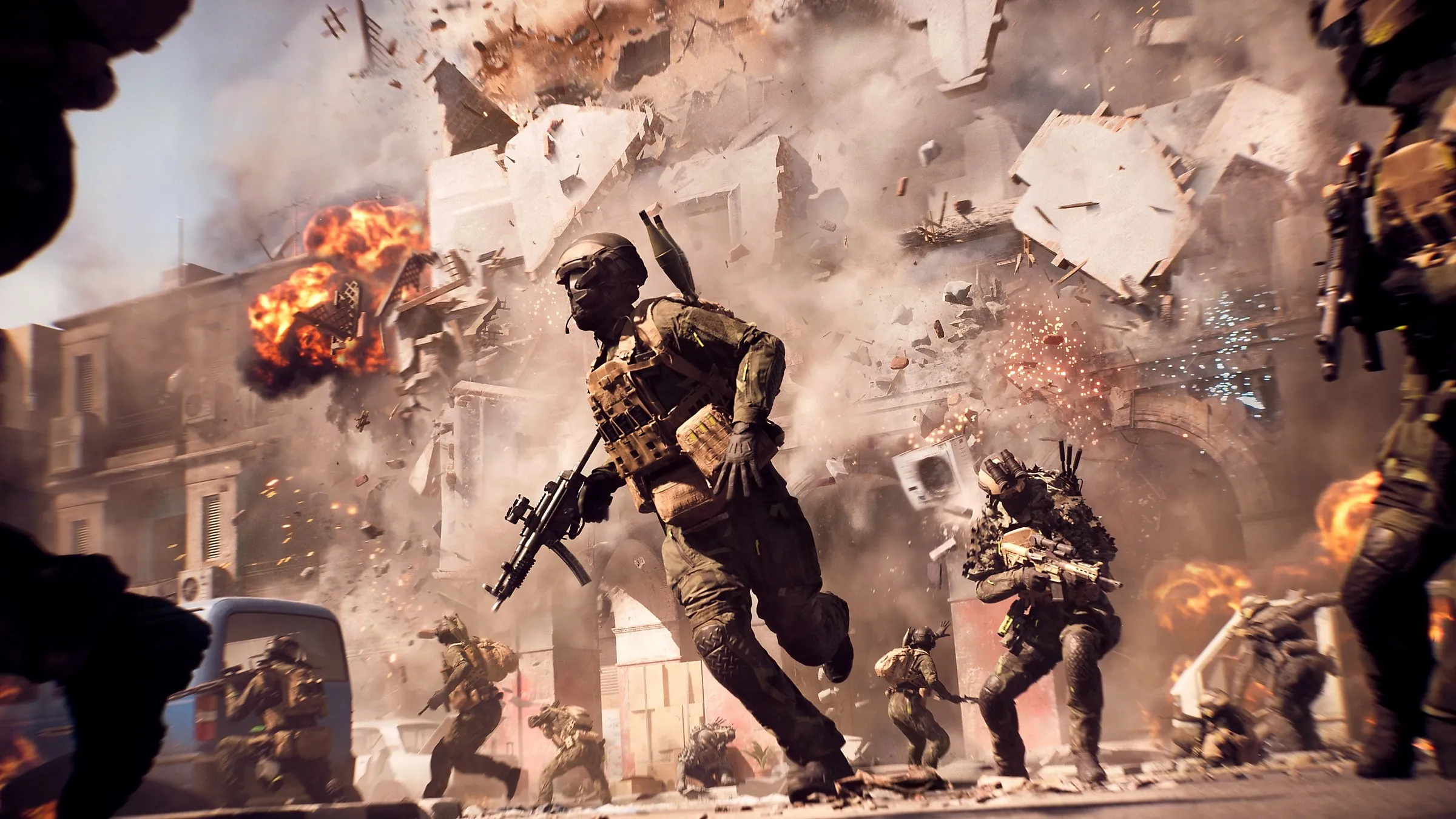
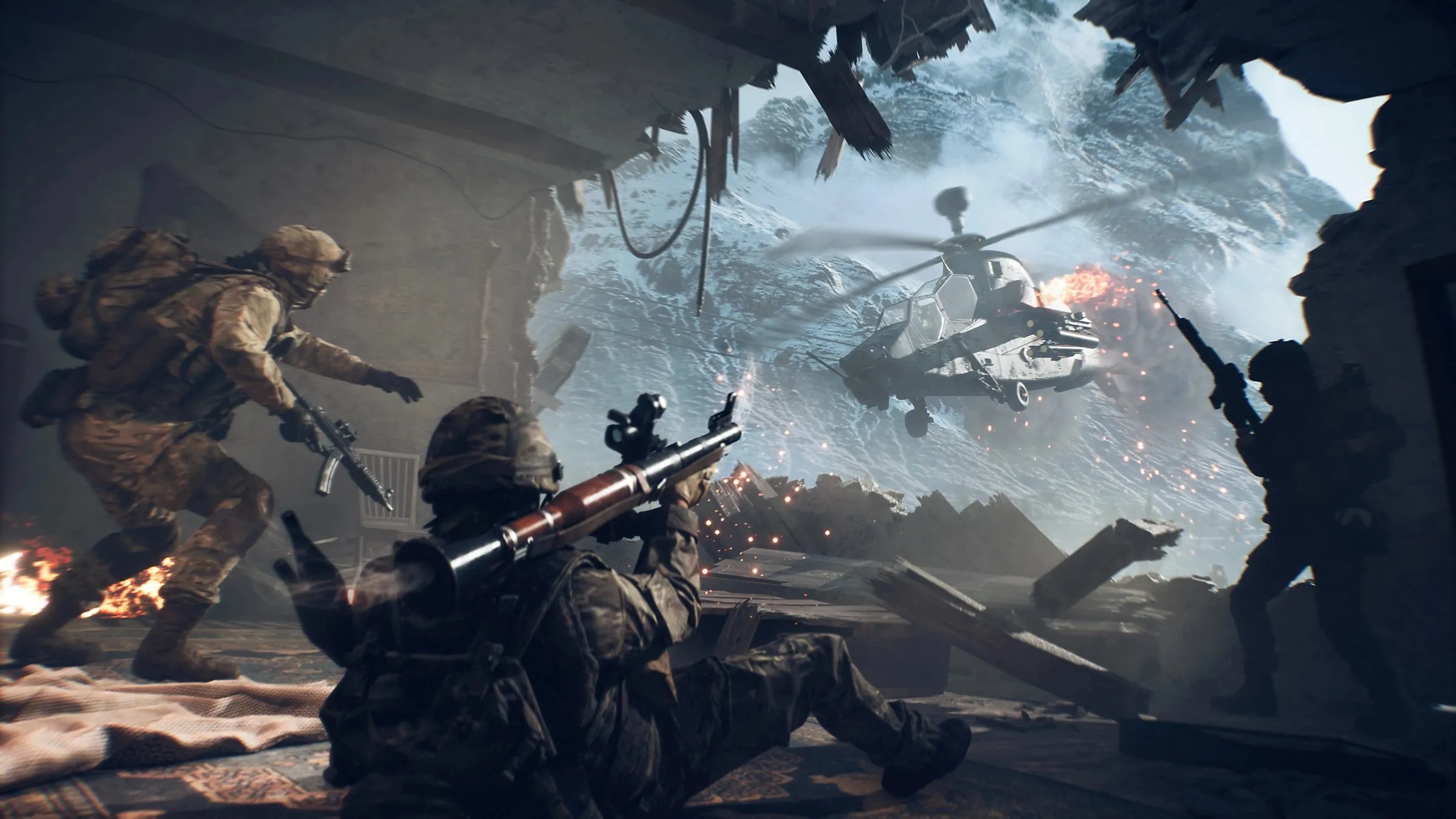
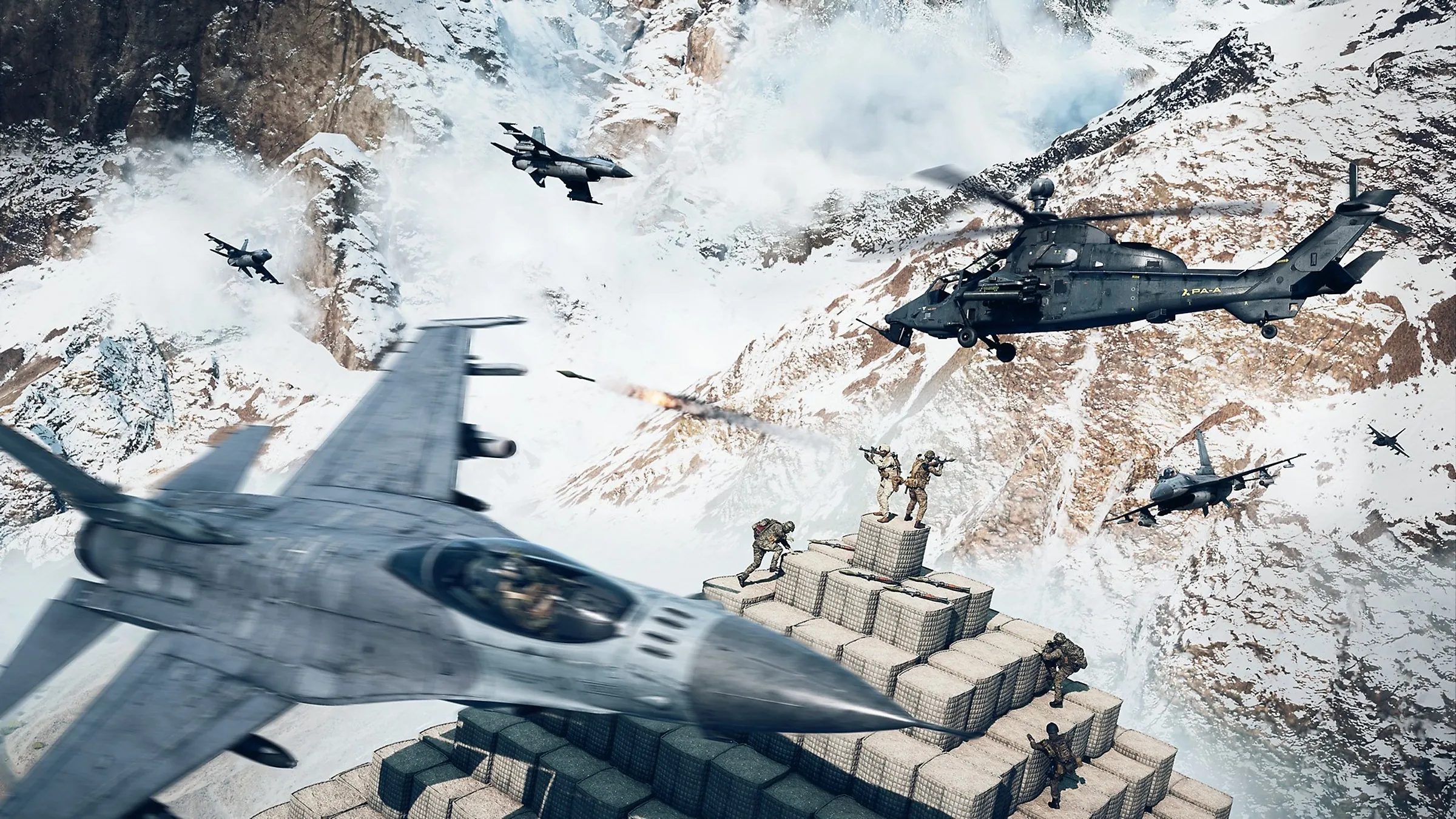
This isn’t happening in a vacuum. Just months ago, Dragon Age: The Veilguard bombed hard, with EA’s own CEO blaming the lack of live-service hooks instead of the writing or design choices.
Players saw that as corporate denial, and Odet just so happened to have worked on that project too.
Now he’s at the center of another storm. Different game, same publisher, same frustrated fan base. The optics are ugly.
For EA, it’s another HUGE reminder that the people who build their games don’t exist in a PR-free bubble anymore.
Every post, every like, every hot take can, and will, come back to bite the company when players connect the dots.
Will sales suffer?
Well… probably not. Battlefield is a juggernaut. Even with refunds and hashtags flying, millions will line up at launch.
The brand loyalty is too strong, and the thirst for a new military shooter to rival Call of Duty is too real.
Still, the controversy creates noise. Instead of headlines about gameplay innovations or graphical leaps, EA is stuck in a cycle of outrage. That hurts momentum.
It also hands ammo to Call of Duty’s marketing team, who won’t need to lift a finger to highlight Battlefield’s baggage.
A PR test case
The Odet saga feels like a case study in how publishers handle developer speech.
Do they distance themselves to protect the brand? Do they double down and ignore it? Or do they, as they’ve done here, go silent and hope time makes everyone forget?
Each choice comes with risks. Silence risks looking complicit.
Action risks angering half the audience. And if bans on Steam continue, EA might find itself accused of censorship more than community moderation.
In the end, the players will decide with their wallets. And right now, a noticeable chunk is saying no thanks.
But fans say the apology is too little too late as launch date approaches.

